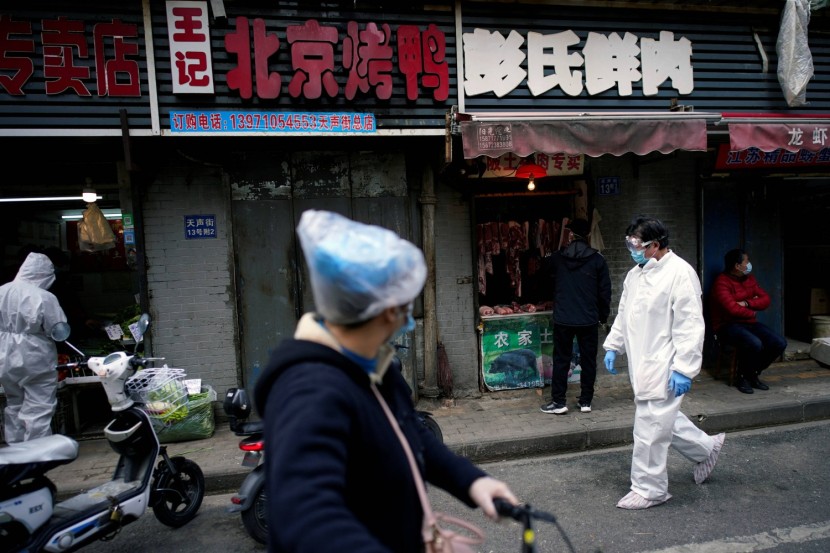
Fish and vegetable merchants in the wet markets of China's central city of Wuhan, the center of the Covid-19 pandemic, are reopening their stalls as the month-long lockdown has been lifted against the threat of the Covid-19 (coronavirus) pandemic, but their future might struggle due to the depleting number of customers as the virus stigma persists.
The new coronavirus, which has infected about 1.6 million people and killed 106,000 in 214 countries around the world, is reported to have appeared late last year among wild animals in a seafood market in Wuhan China that has been boarded up and closed since January.
Vendors Struggle after 'Wet Markets' are Branded as COVID-19 Source
That has brought heavy scrutiny for wet markets, a key facet of China's daily life, even though only a few merchants sell wildlife. U.S. officials have called for the closure of these wet markets in China and others across Asia.
A local vegetable and meat vendor at a wet market in Wuhan China, Jin Qinzhi said that it is a person to person virus no matter where you are, even the supermarkets are full of people while in the outdoor market, people are more scattered. He also added that as long as proper precautions are taken and disinfecting are given attention then it would be fine.
As a common sight across Asia, wet markets traditionally vend fresh produce and live animals, such as fish, in the open air. These are popular with shoppers who believe the products on sale are fresher and cheaper than the items sold in supermarkets.
Stall owners in Wuhan aforementioned they are not optimistic after their businesses were badly hurt by the strict implementation of shutdown in China, which laid out a temporary ban on trade and consumption of wildlife in January.
Despite the lockdown has been lifted earlier in the week amid the drop of new local cases, many rules remain, which prevents people from moving freely.
Zhang, fish vendor, said that there is no business since no one is coming. She also added that everywhere is blocked and people cannot come. She also added that people are scared to go out and contract the virus.
Wuhan Markets to be Upgraded
On Friday, April 10, the officials of the city of Wuhan has announced that the city will spend 200 million yuan ($28.4 million) to upgrade its 425 farmers' markets, in a campaign to improve hygiene. But, some worry that they may not stay around long enough to see it.
Jin said that they don't have any income and business. And if this situation continues, it will be very difficult for them to survive.
Mainland China reported 99 new coronavirus infections on April 11, more than double from the previous day, taking its tally to 82,052, with a death toll of 3,339. Almost all of the new infections, the biggest daily count since March 6 involve travelers from overseas. Globally, the virus has reached 214 countries, infected 1.6 million people, and killed about 106,000.
© 2026 HNGN, All rights reserved. Do not reproduce without permission.








